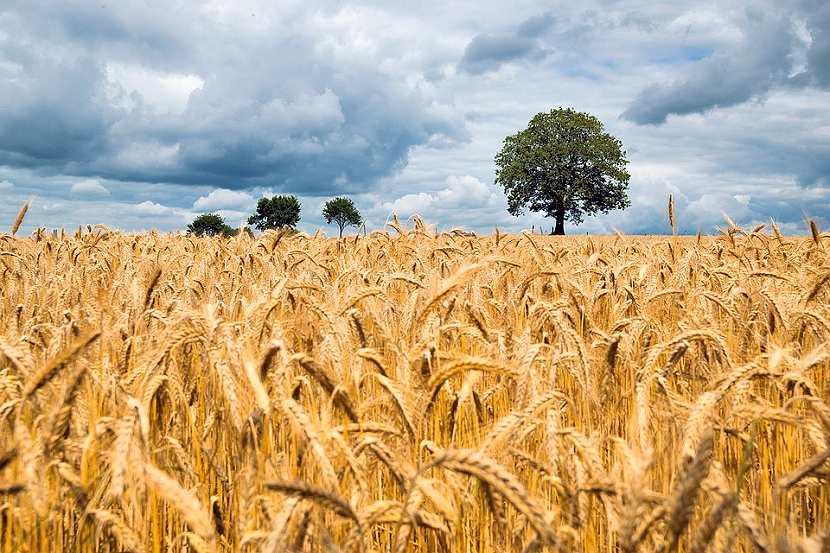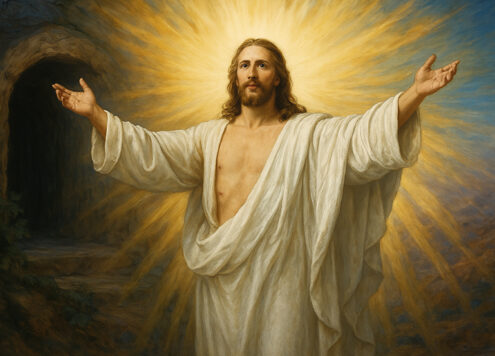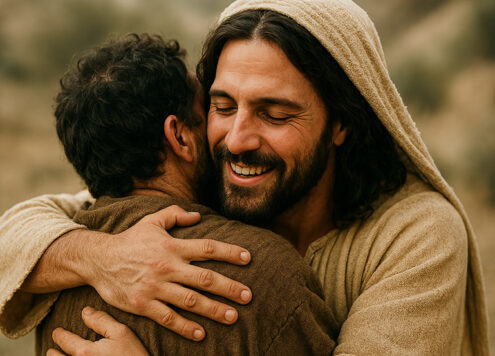In his famous work, ‘The City of God’, St. Augustine describes the Church as a ‘corpus mixtum’, a mixed body or as we say today, a mixed bag. The Church, Augustine points out, has an Institutional and a Spiritual side.
The Institutional side of the Church has its faults because it is made up of flawed human beings who carry the scars of original sin. Notwithstanding the reality of human weakness (and there is a long list of wrongs and abuses in the Church’s Institutional history), the fact of the matter is that this Institution does a lot of good through its ministry of worship, it’s social and healing ministries, the sacraments, and the preservation of the word of God in the Scriptures.
The Spiritual side of the Church is where grace becomes active in the lives of people. This spiritual aspect of the Church, in its truest sense, comes about when Christ dwells in you. St. Paul attests to this in his letter to the Galatians when he says, “I live now, not I, but Christ lives in me” (Galatians 2:20). This is the true spiritual essence of Church, to become a new person through Christ. The beauty of it all is that Jesus offers this personal gift of redemption, through grace, to all those who are willing to follow Him.
Jesus relates a wonderful parable on this subject. It is the parable of the weeds among the wheat (Matthew 13:24–30). He talks about two, not one sower who spread their seed. The good sower is God “who sowed good seed in his field”, and then there is the evil sower, the devil, who “sowed weeds through the wheat, and then made off.” This is an image of the kingdom of Heaven on earth, of a flawed Church which is made up of good seed and bad seed.
The question is how to deal with the imperfect people, the weeds in the Lord’s kingdom on earth? The Lord’s servants ask Him, “Do you want us to go out and pull them up?” The Lord responds, “No, pull up the weeds and you might take the wheat along with them.” What a compassionate answer!
We are being asked here to be patient, tolerant and realistic. Good people have to live side by side with bad people all the time; at work, at play, in the same house, and in the same Church. Only God can pierce the recesses of the human heart. His grace can triumph in spite of human wickedness. Many a sinner was converted to Christ “on the eleventh hour” to become outstanding witnesses to the power of the gospel. Look at St. Paul, the erstwhile persecutor of Christians, who converted and turned his life over to Christ!
The lord is compassionate. He does not want to unsettle or confuse the good people in His kingdom whose lives may be intertwined with bad people. And He does not want to abandon the bad people whose lives can change.
So, what does the Lord say to us in this parable of the weeds among the wheat? “Let them grow together,” He says, “until harvest.” The harvest has reference to the day of judgment when the Lord of the harvest will separate the faithful from the unfaithful, the wheat from the weeds, the good from the bad, and gather the faithful into Heaven.
What are we to do, however, in our present age, about the liberal secular culture we live in that is inimical to the Christian way of life? A culture that constantly raises barriers, and creates obstacles for those who wish to maintain their Christian way of life? This is a big problem for Christian families today whose children go to public schools, who have to make a living in the secular workplace, who have to cast votes in politics, and who have to take their place in a largely, neo-pagan society. It is a critical question, and it needs to be faced.
Some say we need to withdraw from the culture completely, and create communities where Christians can freely practice their faith, apart from an antagonistic, secular culture. Rod Dreher, in his book: The Benedict Option, proposes this solution to the problem of living a Christian way of life in today’s society. But, is that really necessary or desirable or is there another way? Is it not possible to live a Christian way of life in today’s world without actually being part of the evil in the world? (John 15:19). Is it not possible for Christians to be the leaven in society, the means of improving it, and purifying it of wickedness? (Matthew 13:33).
Today’s insightful parable provides the answer. We are not called to live in a perfect society. We are called to be “good wheat,” to be faithful to the gospel, in season and out of season, in an imperfect world. This means loving all of God’s children. The Lord does not tell us to get rid of the bad people around us. When Christians, in the age of Christendom, tried to purge society of those whose values and beliefs were different to theirs, they sadly besmirched the name of Christ by indulging in atrocities contrary to the gospel.
In this parable of the weeds among the wheat, Jesus wants us to be like the good wheat, but to be patient and forgiving of those whose values are different to our own.
Let’s be clear about one thing. Throughout the gospels the true members of the Church, the wheat, are those who hear the Lord’s word and keep it.
The institutional Church, as is obvious, can be infected by the spirit of the world. There is an old and revered teaching, derived from St. Augustine, and popularized by Karl Barth, “Ecclesia semper reformanda” (The Church must always be reformed). This teaching is based on the knowledge that we are a Church of sinners, and we all need to be constantly reformed from the highest to the lowest.
The kingdom that Jesus came to establish on earth is primarily spiritual (Luke 17:21). It comes about when people let go of sin to follow the good news of the gospel.
If Christ is within you, you can possess Him in your heart wherever you go, and wherever you are. You can bloom where you are planted.
Never lose sight of that.
—Fr. Hugh Duffy











12 Comments
Kelly Weaver
Thank you SO much Father Duffy for this simply put message. This is so needed in this time. I myself find myself judging “the good” and the bad. I want to be the good wheat!!!! God bless you!
Kay Gross
Thank you so much for the message! We are all try to be wheat in this land of disarray!
Lawrence Cornelious Murphy
I always wonder what this world would be like without original sin? Like a fairytale! Yes, in the end the reward is so so great!!! TBTG!!!
Matt Steele
Thank you so much for this insight! May God bless you!
Pastor Martin V. Paye, Sr
Praise God! I appreciate you very highly.
Charlotte Pulham
Charlotte Pulham
Thank you so much for this message. It has put me in a better frame of mind.
Lawrence Cornelious Murphy
I always wonder what this world would be like without original sin? Like a fairytale! Yes, in the end the reward is so so great!!! TBTG!!!
Hugh Duffy
Lovely comment, Lawrence. You grasp the positive aspect of Original Sin where out of evil comes good.
Hugh Duffy
I’ve enjoyed your insightful comments about today’s blog. The parable of the “weeds among the wheat” is Jesus’s view of the Church, so down to earth and realistic. It shows how important it is to learn from the scriptures what Jesus, not man, says about his kingdom on earth, and what we need to do about it. Bless you.
Nancy Tupas
Thank you for your blogs!
Hugh Duffy
Nancy:
I hoped you might bring up the subject of Original Sin which you discussed on the phone with me today.
You raised some good points on the phone regarding the perception of many today on Original Sin. It is not in Scripture but it is a doctrine that explains the fall and the absence of grace. Grace is the work of the Holy Spirit which perfects human nature, which is essentially good.
nanciytupas
Interesting, Thank you for your blog!